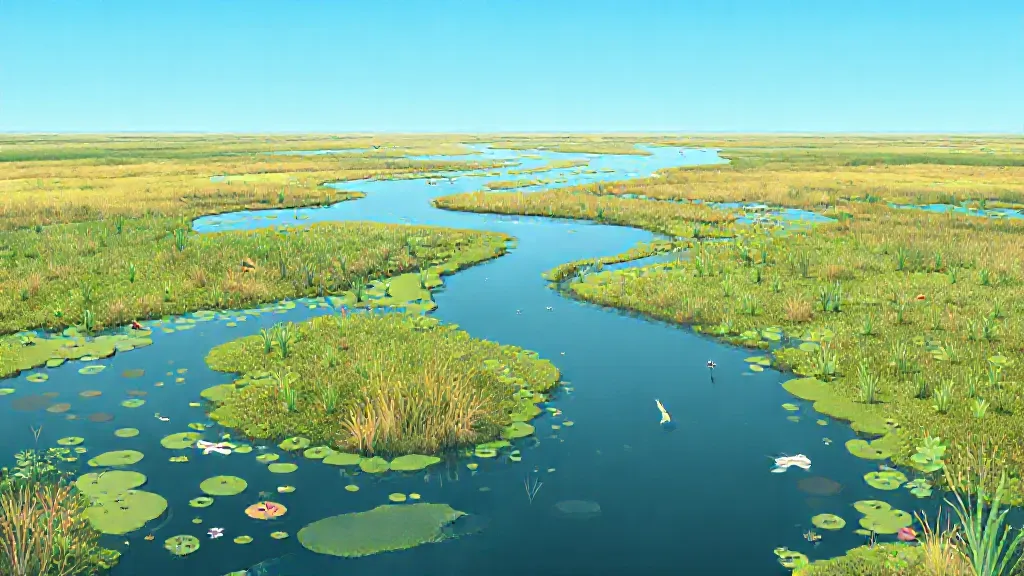Wetlands are unique ecosystems that exist at the interface between terrestrial and aquatic environments. They are characterized by saturated soil conditions and the presence of water, either permanently or seasonally. Wetlands play a vital role in nature, providing essential services that benefit both the environment and human society.
Their importance can be understood through their functions in biodiversity support, water quality improvement, flood control, and carbon sequestration.
Biodiversity Hotspots: A Sanctuary for Species
Wetlands are among the most biologically diverse ecosystems on the planet. They serve as critical habitats for a wide array of plant and animal species, many of which are specially adapted to wetland conditions.
For instance, migratory birds rely on wetlands as stopover points during their long journeys, while amphibians and fish utilize these areas for breeding and feeding. The rich biodiversity found in wetlands contributes to the overall health of ecosystems, supporting food webs and maintaining ecological balance.
Water Quality Enhancement: Natural Filtration Systems
One of the most significant roles of wetlands is their ability to filter pollutants and improve water quality.
Wetland plants and microorganisms break down harmful substances, including nutrients like nitrogen and phosphorus, which can lead to eutrophication in aquatic systems. By absorbing excess nutrients and trapping sediments, wetlands act as natural filtration systems, ensuring that water entering rivers, lakes, and oceans is cleaner and healthier for aquatic life and human use.
Flood Control: Natural Buffers Against Extreme Weather
Wetlands play a crucial role in flood control by acting as natural sponges.
During heavy rainfall or snowmelt, wetlands absorb excess water, reducing the risk of flooding in surrounding areas. This capacity to store water not only protects communities from flood damage but also helps to recharge groundwater supplies. Historical events, such as Hurricane Katrina in 2005, highlighted the importance of wetland preservation in mitigating flood risks and protecting coastal communities.
Carbon Sequestration: Combatting Climate Change
Wetlands are significant carbon sinks, capable of sequestering large amounts of carbon dioxide from the atmosphere. The anaerobic conditions prevalent in wetland soils slow down the decomposition of organic matter, allowing carbon to be stored for extended periods. This process is vital in the fight against climate change, as wetlands help to mitigate greenhouse gas emissions.
The restoration and conservation of wetlands are essential strategies for enhancing carbon sequestration efforts globally.
Cultural and Economic Significance: Beyond Ecology
Wetlands are not only ecologically important but also hold cultural and economic value. Many indigenous communities depend on wetlands for their livelihoods, utilizing resources like fish, wild rice, and medicinal plants.
Wetlands also provide recreational opportunities, such as birdwatching, fishing, and kayaking, contributing to local tourism and economies. Recognizing the multifaceted benefits of wetlands is crucial for promoting sustainable management practices.
Threats to Wetlands: The Need for Conservation
Despite their importance, wetlands face numerous threats, including urban development, agriculture, and climate change.
Drainage for agricultural expansion, pollution from industrial activities, and rising sea levels are leading to significant wetland loss worldwide. According to the Ramsar Convention, approximately 64% of the world's wetlands have been lost since the 1900s. Protecting existing wetlands and restoring degraded areas is imperative for maintaining their ecological functions.
Global Initiatives: Protecting Wetlands Worldwide
Efforts to protect wetlands have gained momentum globally, with various initiatives and policies aimed at conservation. The Ramsar Convention on Wetlands, established in 1971, is an international treaty that promotes the sustainable use of wetlands. Countries are encouraged to designate Wetlands of International Importance and develop management plans that ensure their conservation.
Local and national efforts, such as the establishment of protected areas and restoration projects, are also vital in safeguarding these ecosystems.
Conclusion: The Future of Wetlands in Nature
In conclusion, wetlands play an indispensable role in maintaining ecological balance, supporting biodiversity, improving water quality, and mitigating climate change. Their functions extend beyond environmental benefits, influencing cultural practices and economic activities.
As we face increasing environmental challenges, the conservation and restoration of wetlands must be prioritized to ensure a sustainable future for both nature and humanity. Understanding and appreciating the vital roles of wetlands is the first step toward their preservation and protection.
